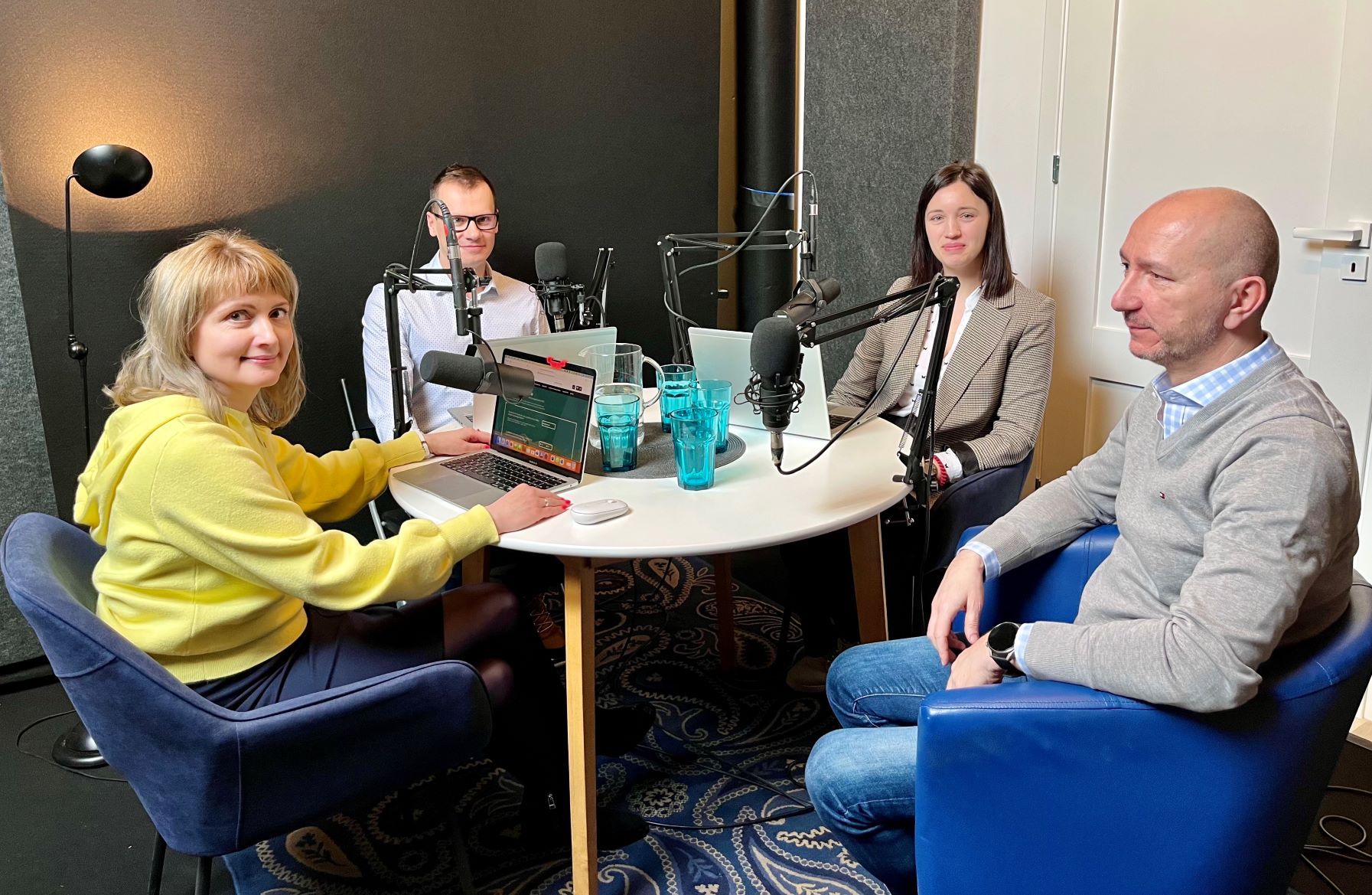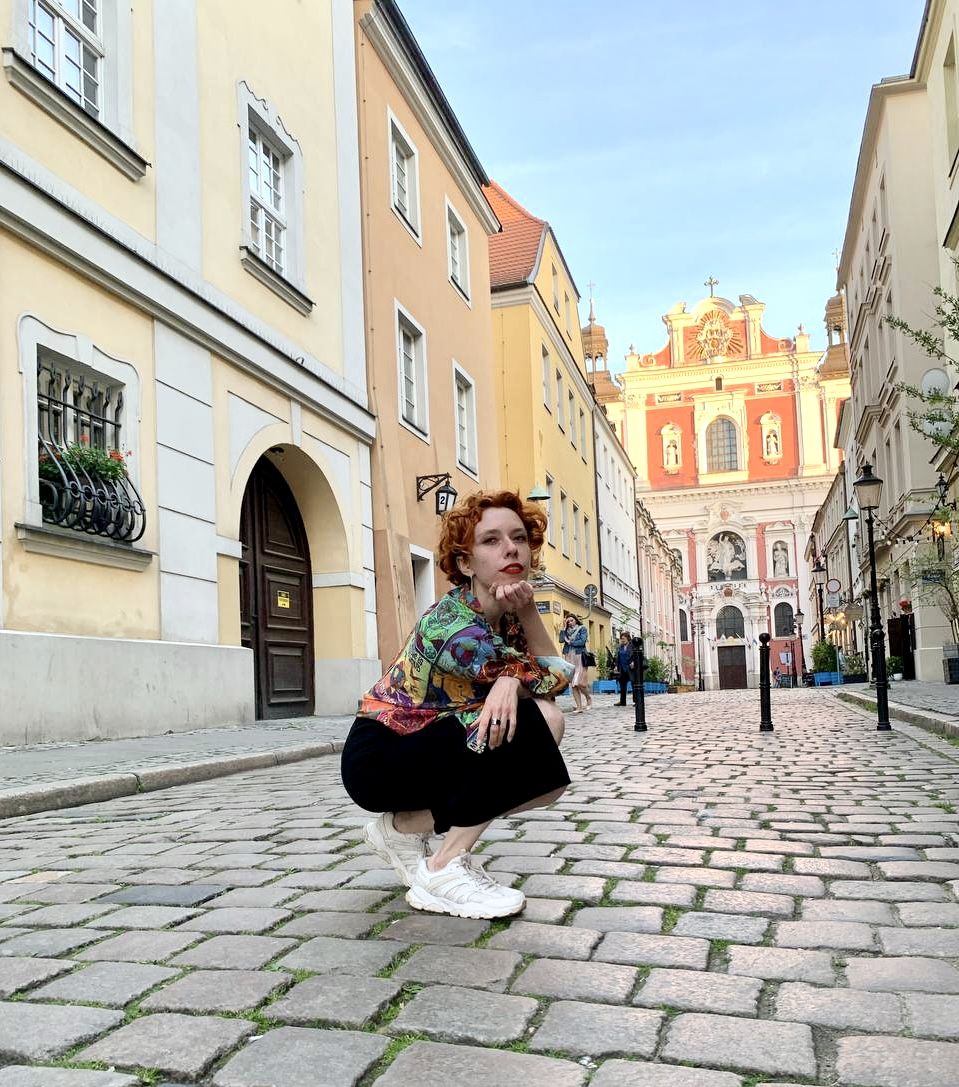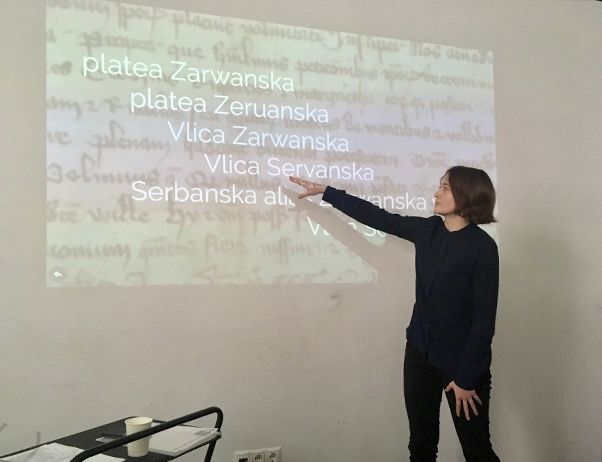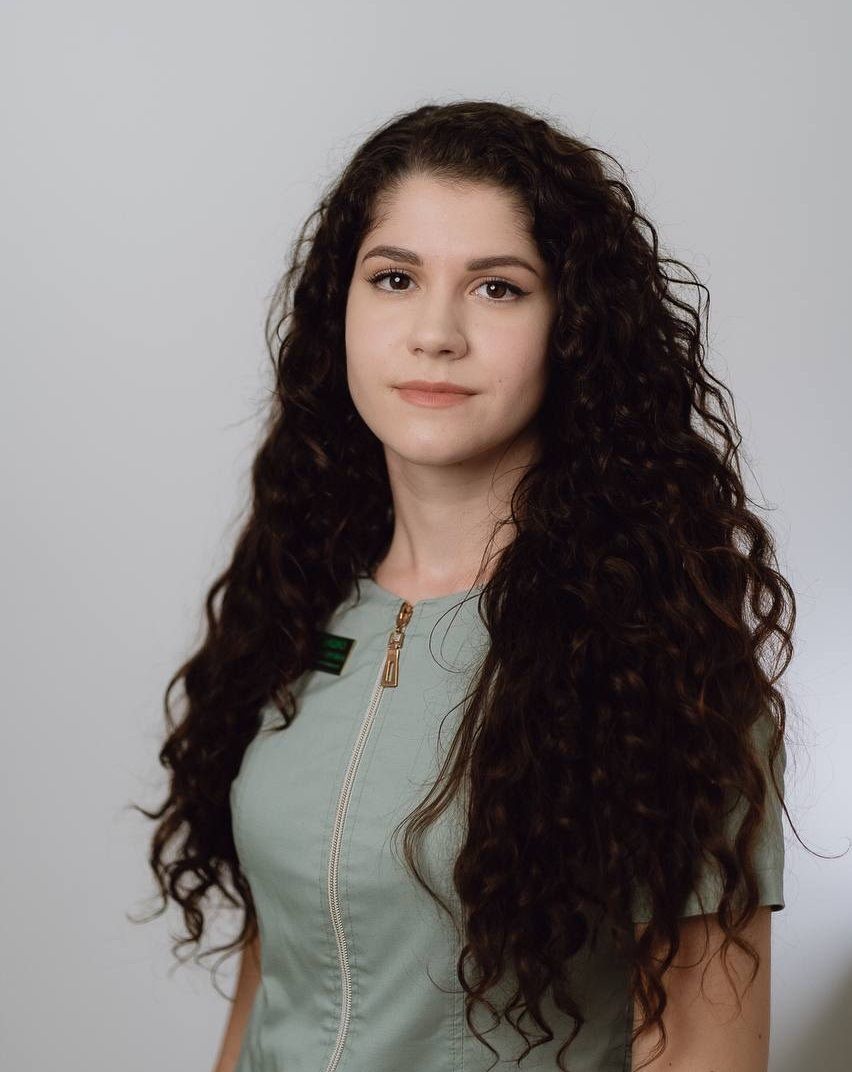21 February 2023
The National Science Centre (NCN), in cooperation with the JPI HDHL network (Joint Programming Initiative “A Healthy Diet for a Healthy Life”), is pleased to announce a call for international research projects with the aim of better understanding the food-health relationship and subsequently translate this knowledge into programmes, products, tools and services that enable consumers in Europe and beyond to live a healthy life. This call intends to fund dedicated, top-class transnational and transdisciplinary research consortia focusing on systems approach to build knowledge to prepare for and succeed with a dietary shift towards a healthier and more sustainable diet where improved use of resources is a driving force.
The title of the JPI HDHL Call 2023 is: “New food resources and technologies to improve public health and food security” (FOODRETEC)
Funding proposals may be submitted by international consortia composed of at least 3 (and no more than 6) research teams from at least 3 different countries participating in the call. The principal investigator of the Polish research team must hold at least a PhD degree.
Countries participating in the call: Austria, France, Ireland, Norway, Poland, Romania.
Due to the Russian invasion of Ukraine, the NCN Council has decided that proposals submitted to NCN calls must not provide for any collaboration between Polish and Russian entities. Where such collaboration is planned, the proposal may be rejected.
The application procedure:
This call uses a single submission procedure (full proposals), including a rebuttal stage.
Project submission stage:
International level: Joint full proposals must be written in English and must be submitted before April, 21st 2023 at 15:00 CEST to the JCS by the project coordinator through the PT-Outline electronic submitting system exclusively.
National level: an NCN proposal concerning the Polish part of the project drafted by the Polish research team and submitted to the NCN electronically via the OSF electronic submission system within 7 days of the joint full proposal submission date at the international level.
The structure and the content of the proposal should strictly follow the “Guidelines for applicants”.
Call Timeline:
- Proposal Submission deadline: April, 21st 2023, 15h00 CEST
- Submission deadline for NCN proposals in OSF: April, 28th 2023
- Reviews sent to the applicants for rebuttal: June, 26th 2023 CEST
- Rebuttal Deadline: July, 6th 2023, 15h00 CEST
- Call results: October 2023
Under JPI HDHL funds can be awarded for salaries of the research team members, salaries and scholarships for students and PhD students, purchase or manufacturing of research equipment and other costs crucial to the research project.
The total funding allocated by the NCN for research tasks to be performed by the Polish research teams under the call is 500,000 EUR
The EUR budget for the Polish part of the research project in the joint proposal must be calculated according to the following exchange rate: 1 EUR = 4,6976 PLN.
Please read:
- the call documents on the website of the JPI HDHL network (applicable to all applicants in the call);
- information for applicants below and annexes hereto (applicable only to applicants requesting NCN funding).
Show all»
Hide all«
Proposals in the call may be submitted by entities specified in the Act on the National Science Centre, namely:
- universities,
- federations of science and HE entities,
- research institutes of the Polish Academy of Sciences operating pursuant to the Act on the Polish Academy of Sciences of 30 April 2010 (Journal of Laws of 2020, item 1796, as amended),
- research institutes operating pursuant to the Act on Research Institutes of 30 April 2010 (Journal of Laws 2020, item 1383, as amended),
- international research institutes established pursuant to other acts and acting in the Republic of Poland,
5a. Łukasiewicz Centre operating pursuant to the Act on the Łukasiewicz Research Network of 21 February 2019 (Journal of Laws 2020, item 2098),
5b. institutes operating within the Łukasiewicz Research Network,
- Polish Academy of Arts and Sciences,
- other entities involved in research independently on a continuous basis,
- groups of entities (at least two entities mentioned in sections 1-7 or at least one institution as such together with at least one company),
- scientific and industrial centres laid down in the Act on Research Centres of 30 April 2010 (Journal of Laws 2020, item 1383, as amended),
- research centres of the Polish Academy of Sciences laid down in the Act on the Polish Academy of Sciences of 30 April 2010 (Journal of Laws 2020, item 1796),
- scientific libraries,
- companies operating as R&D centres laid down in the Act on Certain Forms of Support for Innovation Activities of 30 May 2008 (Journal of Laws 2021, item 706),
- legal entities with registered office in Poland,
13a. President of the Central Office of Measures,
- natural persons and
- companies conducting research in other organisational form than set forth in sections 1-
If research projects are carried out by two or more Polish partners applying for NCN funding, they must set up a group of entities (see item 8 above) and as such submit NCN proposals. An NCN proposal is submitted by a leader specified in the research project cooperation agreement concluded by the group of entities. An institution employing the principal investigator acts as the leader of the group of entities.
Please note: If, pursuant to Article 27 (1) (2) of the NCN Act, Polish entities cannot set up groups of entities, they are not eligible to apply for NCN funding of a joint research project.
A template research project cooperation agreement
Proposals submitted to the call (New food resources and technologies to improve public health and food security) shall included research on:
- Ensuring consumer acceptance of new products and more sustainable technologies, i.e., addressing knowledge barriers, enhancing sensory properties of food from new sustainable (protein) sources or functional ingredients (e.g. foods containing bio-actives),
- Investigating new components (e.g. plant-based, marine ingredients, insects, side stream valorisation, biomass, cell cultures etc.) as a source of nutrients and functional food ingredients (e.g. protein, fibre, bio-active compounds etc.),
- Ensuring food safety in the entire food chain focussing on residues, degradation products and (process) contaminants including aspects of sustainable food processing and side-stream valorisation,
- Improving nutritional quality aspects of using new ingredients or new food processing technologies as well as their impact on health.
Proposals should focus on one or more of the following approaches and methodologies:
- exploratory research where consumer insight is included (social labs, living labs, etc.)
- systemic reviews to map and organize current research on the area
- building more research and knowledge on the food science aspects
Beyond the research topics the following points should be taken into account:
- Proposals should show a strong collaboration between partners from different disciplines e.g. food technologists, nutrition scientists, social scientists,
- Proposals should clearly demonstrate the benefit of working together and the unique contribution of each partner,
- Proposals should be consumer oriented, e.g.: by handling consumer perception, acceptance,
- Proposals are encouraged to engage end-users (e.g. consumers, industry) in the research process from conception of the study to dissemination and implementation. The engagement with end-users increases the impact of research and facilitate its later use in public health practice, contributing to the sustainability of the funded initiative,
- Proposals should consider potential moderators of effects such as age, sex, gender, ethnic or other demographic factors/variables in the respective research approaches,
- Proposals should be complementary to the Knowledge-Hub SYSTEMIC co-funded under JPI HDHL, FACCE JPI and JPI OCEANS.
More information on the subject of the call can be found in the JPI HDHL announcement.
Please note: Polish researchers may apply for NCN funding of their basic research projects for the purposes of Article 2 (1) of the NCN Act.
NCN proposals comprising research tasks overlapping with research tasks to be carried out in another proposal that has been already submitted in any NCN call or with respect to which an appeal has been initiated, may only be submitted once the funding decision has become final.
Research projects may be planned in the call for a period of 36 months.
Apart from the principal investigator, research tasks may be performed by co-investigators, including students, PhD students and post-docs.
A post-doc type postition is a full-time postition, scheduled by the project’s principal investigator for a person who has been conferred a PhD degree within 7 years prior to the year of employment in the project. This period may be extended pursuant to the Types of costs in research projects funded by the National Science Centre under international calls carried out as multilateral collaboration UNISONO.
Please note: Persons employed as post-docs must have their PhD degree awarded by another institution than the one employing them at this post or must have completed a continuous and evidenced post-doctoral fellowship of at least 10 months in another institution than the host institution for the project and in another country than the one in which they have been conferred a PhD degree. Persons employed as post-docs in the project must be recruited in an open call procedure.
PhD students who are NCN-scholarship grantees must be recruited in an open call procedure.
An international expert team will review the relevance of involvement of particular members of the research team in the project. The competences and tasks to be performed by particular members of the research team must be described in the proposal. For more information on the budget for salaries and scholarships, please read the Types of costs in research projects funded by the National Science Centre under international calls carried out as multilateral collaboration UNISONO.
The terms of the call do not specify the maximum number of research team members.
Scholarship grantees and post-docs must not be named in either joint or NCN proposals.
The project budget must be justified as regards the subject and scope of research and based on realistic calculations. The budget must include expenditures eligible for funding from NCN resources (the so-called eligible costs).
The terms of the call do not specify the minimum or maximum (total) funds that may be requested.
The budget in the NCN proposal must be quoted in PLN, while the budget in the joint proposal, in EUR.
The EUR budget for the Polish part of the research project in the joint proposal must be calculated according to the following exchange rate: 1 EUR = 4,6976 PLN.
The project budget (eligible costs) include direct and indirect costs.
Direct costs include:
- remuneration for the principal investigator;
- remuneration for co-investigators in the project:
- full-time remuneration for post-docs,
- salaries and scholarships for students and PhD students,
- the so-called additional remuneration for members of the research team. If the principal investigator is not to be employed full-time in the project, his/her remuneration is paid from the pool allocated for additional remuneration;
- purchase or construction of research equipment, devices and software;
- purchase of material and small equipment;
- outsourced services;
- business trips, visits and consultations;
- compensation for collective investigators and
- other costs crucial to the project according to the Types of costs in research projects funded by the National Science Centre under international calls carried out as multilateral collaboration UNISONO.
Please note: The costs of publication of monographs (as defined in §10 of the Regulation on Evaluation of the Quality of Research Activity passed by the Minister of Science and Higher Education on 22 February 2019 (Journal of Laws 2019, item 392) resulting from research projects may only be incurred following a positive review by the NCN.
Indirect costs include:
- indirect cost of Open Access (up to 2% of direct costs) that may be designated only for the cost of open access to publications or research data;
- other indirect costs (up to 20% of direct costs) that may be spent on costs that are related indirectly to the research project, including the cost of open access to publications and research data.
Please note: The costs of open access to publications may only be incurred as indirect costs. The cost of open access planned as direct costs will be regarded as a formal error.
Where unjustified costs are planned, the proposal may be rejected.
More information on the costs in research projects funded by the National Science Centre in international calls carried out as multilateral collaboration UNISONO.
Please note: We recommend that Polish applicants should consult the budget table of the Polish part of the project with the NCN. The budget table in .xlsx format should be sent to alicja.dylag@ncn.gov.pl by 7 April 2023.
Together with other European research-funding institutions, the National Science Centre is a member cOAlition S. Therefore, the NCN has adopted an “Open access policy” pursuant to which all research results stemming from NCN-funded research projects must be made available in immediate open access.
In accordance with the principles of Plan S, the National Science Centre recognises the following publication routes as compliant with its open access policy:
- Publication in open access journals and on open access platforms registered, or with pending registration, in the Directory of Open Access Journals (DOAJ);
- Publication in subscription journals (hybrid journals), as long as the Version of Record (VoR) or the Author Accepted Manuscript (AAM) is published, by the author or publisher, in an open repository immediately upon the article’s online publication;
- Publication in journals covered by an open access licence within the framework of so-called transformative agreements, inscribed in the Efficiency and Standards for Article Charges registry (ESAC-registry).
More information on Open Access publication can be found here.
Joint proposals are subject to an eligibility check performed by the NCN, other funding agencies participating in the call and the Secretariat of the JPI HDHL Call 2023 (JCS).
Joint proposals that have passed the eligibility check are subject to merit-based evaluation carried out by an international expert team according to the terms of the call announcement.
NCN proposals are subject solely to an NCN eligibility check carried out by the scientific coordinators.
The eligibility check of NCN proposals involves verification of proposal for completeness, compliance with all terms set forth in the call documents and Resolution No 28/2022 of the NCN Council of 2 March 2022, including compliance of the budget with the Annex thereto, i.e. “Costs in research projects funded by the National Science Centre in international calls carried out as multilateral collaboration Unisono”.
The information provided in NCN proposals and in joint proposals must be consistent and identical.
Eligible proposals are reviewed independently by members of international Review Panel created by the funding agencies participating in the Call.
Each project coordinator will have the opportunity to answer the comments of the reviewers. Issues that are not related with reviewers’ comments cannot be addressed and the work plan cannot be modified at this stage.
The applicants will have up to 10 days (between June 26th and July 6th 2023) for this optional answer to the reviewers’ comments.
At the last stage of a merit-based evaluation, the Review Panel choses the proposals recommended for funding on the basis of full proposals, reviews and applicants’ responses. The final list of awarded projects is selected by the Funding Organisations involved in the call.
Only joint proposals are subject to merit-based evaluation performed by an international expert team created by the funding agencies participating in the call. For more information on the evaluation of proposals, please go to the call announcement available at the website of the JPI HDHL network.
The JPI HDHL Call 2023 will be concluded in October 2023. Firstly, project coordinators will be notified of the outcome. Polish research teams will be notified of the results by way of a decision of the NCN Director.
In the event of a breach of the call procedure or other formal infringements related to actions performed by the NCN, the applicants may lodge an appeal against the decision of the NCN Director with the Committee of Appeals of the NCN Council.
If you are intending to submit a proposal in the JPI HDHL Call 2023, please read:
- all call documents, in particular:
National level: before an NCN proposal is submitted to the NCN:
- obtain data from the applicant required to complete the proposal and find out about the internal procedures that may affect the proposal and performance of the research project (project costs, procedure for acquiring signature(s) of authorised representative(s) of the institution to confirm submission of the proposal); if a group of Polish entities applies for funding, draft a research project cooperation agreement;
- make sure that the information in and annexes to the proposal are correct. Checking the proposal for completeness in OSF with the Sprawdź kompletność [Check completeness] button does not guarantee that all information entered is correct and the required annexes have been attached;
- make sure that respective tabs are completed in the correct language;
- disable the final version of the proposal to the NCN and
- download the confirmation of proposal submission which must be signed by the principal investigator and authorised representative(s) of the host institution.
Once the proposal is completed and all the required annexes attached, use the Wyślij do NCN [Send to NCN] button to submit the proposal to the NCN electronically via the OSF system.
Once the call for proposals has been closed:
- evaluation of proposals will be carried out;
- if the proposal is recommended for funding, a funding agreement will be entered into;
- the project will be performed pursuant to the funding agreement and Regulations on awarding funding for research tasks funded or co-funded under international calls launched by the National Science Centre and carried out as multilateral collaboration UNISONO;
In the event of a breach of the call procedure or other formal infringements, the applicant may appeal against the decision of the NCN Director with the Committee of Appeals of the NCN Council. The appeal must be lodged within 14 days of the effective delivery of the decision.


 Who may apply for NCN funding?
Who may apply for NCN funding? Who may act as a principal investigator?
Who may act as a principal investigator? What are the subjects covered by the call?
What are the subjects covered by the call? What is the project duration period?
What is the project duration period? How should the project budget be planned?
How should the project budget be planned? Are there any restrictions on the maximum size of the Polish research team?
Are there any restrictions on the maximum size of the Polish research team? Can proposals in this call include application for state aid?
Can proposals in this call include application for state aid? What is the proposal evaluation procedure?
What is the proposal evaluation procedure? Who performs the merit-based evaluation of proposals?
Who performs the merit-based evaluation of proposals? When and how will the results be announced?
When and how will the results be announced? Open access publication of call results
Open access publication of call results Where can additional information be found?
Where can additional information be found?


